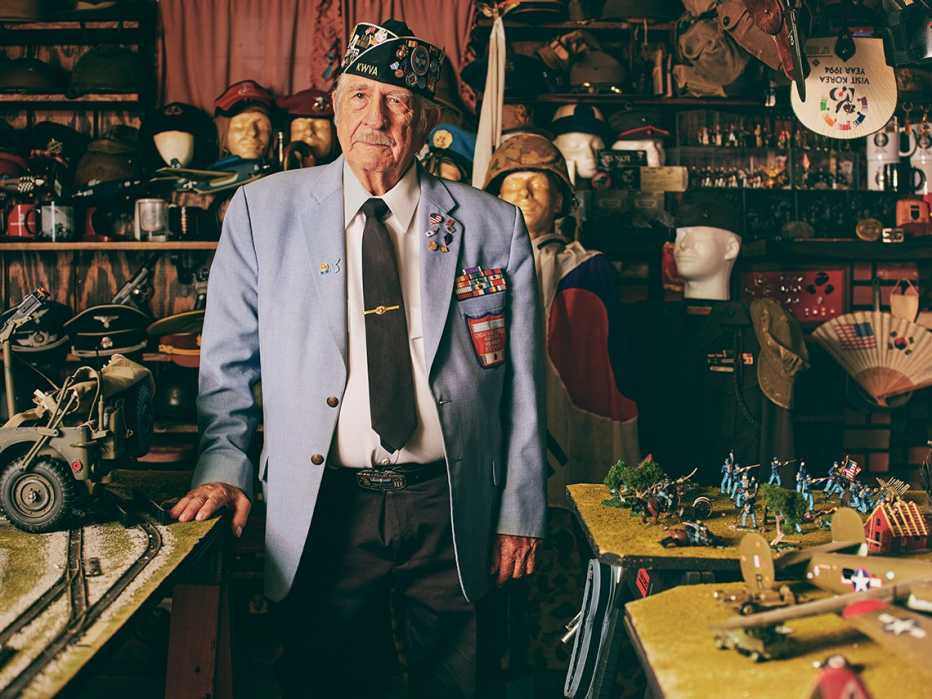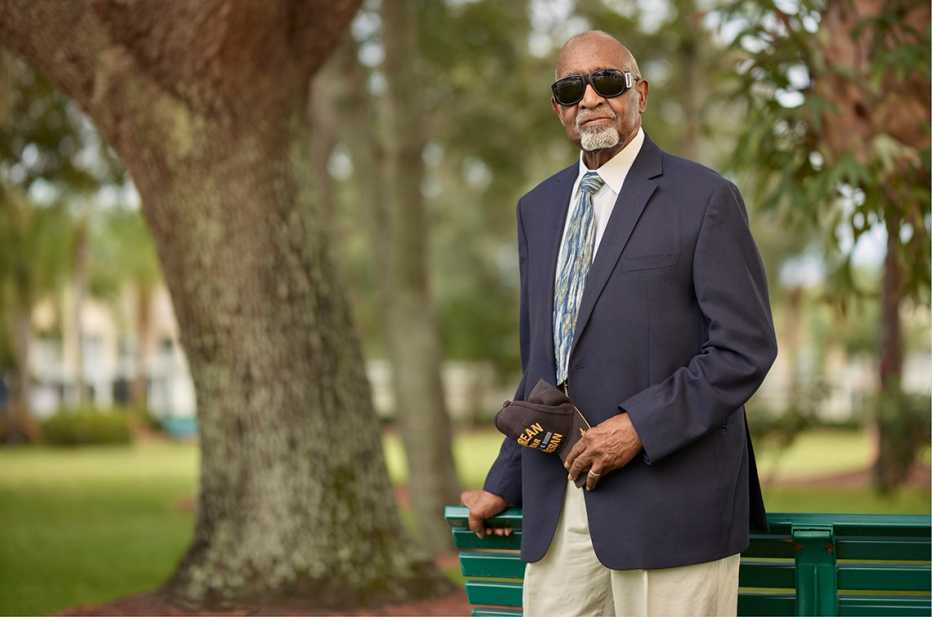And for those of Korean ancestry, the war marked the modern birth of a free and prosperous homeland.
Here are some stories from that war.
Now youve got to understand something.
An 18-year old who goes into the military doesnt have a clue what hes getting into.
He doesnt have a clue about war.
He doesnt have a clue about what a bullet could do to a human body.

When I first went to Korea, I said to my superiors: Why are we going to Korea?
Where the hell is Korea?
Nobody knows anything about Korea.

I was assigned to Baker Company, and we were headed to the MLR the main line of resistance.
We only got three-quarters of the way when we were hit with light fire and mortars.
The Chinese liked to attack when it was getting dark.
They would blow a horn, a bugle and a whistle, and then attack.
We jumped out of our truck.
The sergeant kept yelling, Head for the rice paddy!
I prayed to every saint, in every religion I could think of.
Over the next many months, there were many battles.
There were monsoons, rain so heavy you couldnt see in front of you.
I carried a Browning automatic rifle.
It weighed about 20 pounds, and the ammo belt weighed about 13 pounds.
I carried a .45 and two canteens of water because it got so hot.
I carried all that up mountains, time and again.
One day, we were under heavy fire from the Chinese for 24 hours straight.
The guy next to me got hit in the stomach.
I had just met him, and he fell on top of me.
I put my hand on his belly to apply pressure, but his whole insides were blown out.
This was the first, but not the last, time a fellow Marine died in my arms.
In July of 1952, I was wounded in the leg, neck and hand by a grenade.
I thought I had a million-dollar wound, because I thought I was going home.
But they sent me back to my unit.
Back into the war.
One day, we were patrolling, and we came into this area.
We found civilians South Koreans who had been executed.
There were three little children alive, a boy and two girls.
The little boy I took him to an orphanage, but he died when he got there.
When I got back to my bunker, I felt so much hate.
It tore me apart.
I was sitting there crying, and the guys were saying, Calm down, calm down.
A corpsman tried to give me something, a pill, but I refused it.
And then, I saw this object.
A very bright object.
It spoke to me, and it said, Now you know why you are in Korea.
It is to save these people.
And thats all it said.
Ever since, I have loved the Korean people.
I felt sorry for them.
Why should these civilians suffer?
A soldier has to fight.
These people were not soldiers.
They were just thrown to the wolves.
In those days, the term PTSD did not exist.
They called it combat fatigue or battle fatigue.
Then I came home.
I have been back to South Korea nine times.
South Korea is the only country we ever fought for that still respects and honors us today.
I have got South Koreans that are my brothers.
That is why my story of hatred and hell has become a story of love.
My parents had nine kids, and we all finished high school.
I graduated in 1948.
Me and two buddies were thinking about becoming doctors.
We could not afford college without the military, so we enlisted in the Army.
My two friends enlisted before me, because I was a little shy, a little scared.
My daddy was in World War I.
He didnt talk about it much.
My parents cried when I told them that I enlisted.
I went to Fort Leavenworth, Kansas.
I was cooking for the officers, still waiting for my orders for officer training school.
Before I knew it, I received orders and shipped off to Camp Gifu, Japan.
My unit was segregated.
We had all Black troops and white officers.
Harry Truman had desegregated the military in 1948.
This was 1950, and our unit was all Black troops.
I didnt know anything about it.
To me, it was just status quo.
